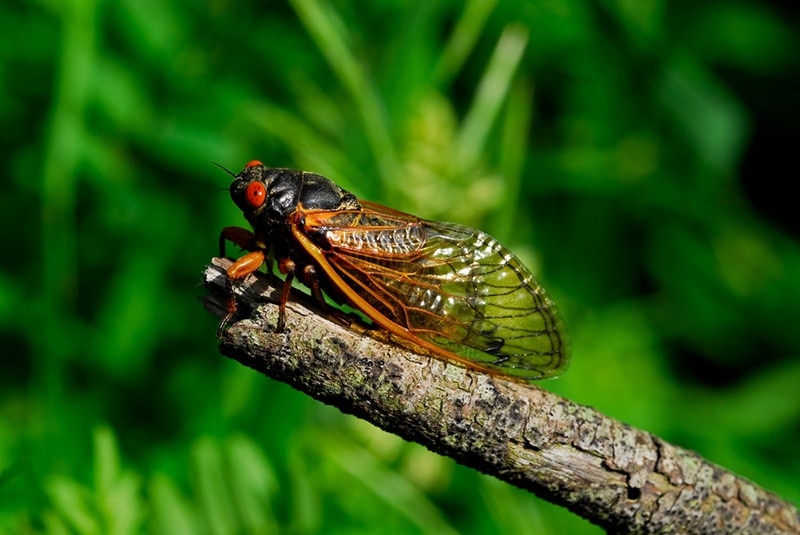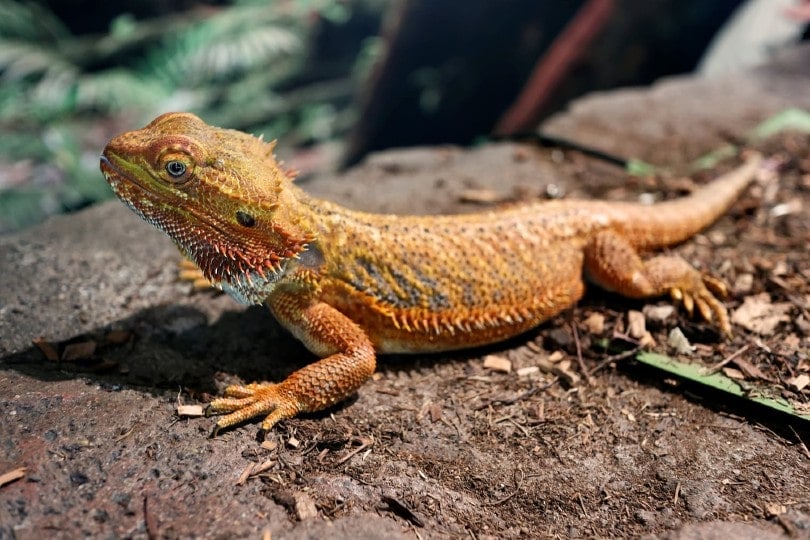How to Tell If a Bearded Dragon Is Happy: 9 Signs to Look For
Updated on
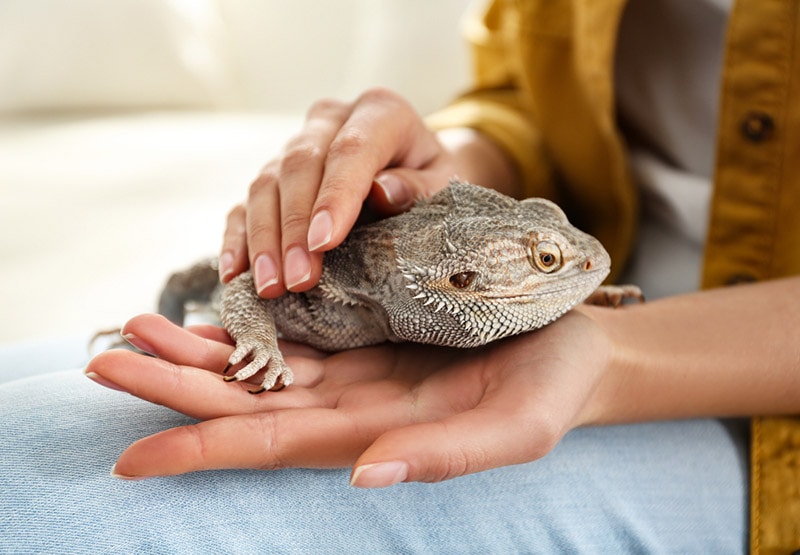
Bearded dragons are stunning reptiles that many people worldwide keep as pets. They’re docile and friendly and love to be around humans, which makes them excellent companions. Although beardies won’t be able to express emotions like a dog or cat might, they can still get attached to you and be happy and content.
In this article, we cover nine signs to look for to determine if your bearded dragon is satisfied or if there’s something bothering it.
The 9 Signs Your Bearded Dragon Is Happy
1. Your Beardie Likes Being Around You
Like most reptiles, bearded dragons are cautious, careful animals that won’t approach everyone. In fact, they are mainly reserved toward people they’re not familiar with. However, once a beardie is happy and content, it will like to be around you and won’t feel afraid.
It’s easy to notice a happy bearded dragon, as it will showcase friendly behavior toward you and won’t get scared or nervous if you handle or pet it.
If your beardie runs away and hides when you approach its environment, that could be a sign that your bearded dragon is unhappy.
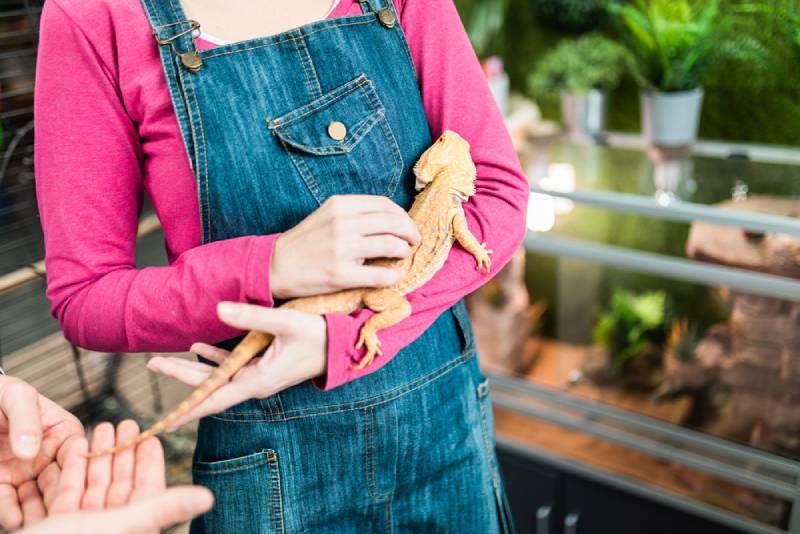
2. Your Beardie Is Showing Normal, Active Behavior
The behavior that your bearded dragon exhibits could help you determine if your reptile friend is content. If your beardie is showing normal, active behavior, including eating regularly, climbing, and sunbathing, the chances are that you have a very happy reptile!
Conversely, if you notice that your bearded dragon is not engaging in its typical behaviors or is not sleeping or eating enough, there may be something wrong. In such situations, it’s best to consult your vet to ensure that everything is okay with your beardie’s health.
3. Your Beardie Shows Positive Body Language
Positive body language includes gentle head bobbing, arm waving, and tail swinging. These are indicators that your bearded dragon is happy and satisfied.
When irritated or angry, bearded dragons typically become moody, which they showcase through fast, aggressive head bobbing and gaping their mouths.
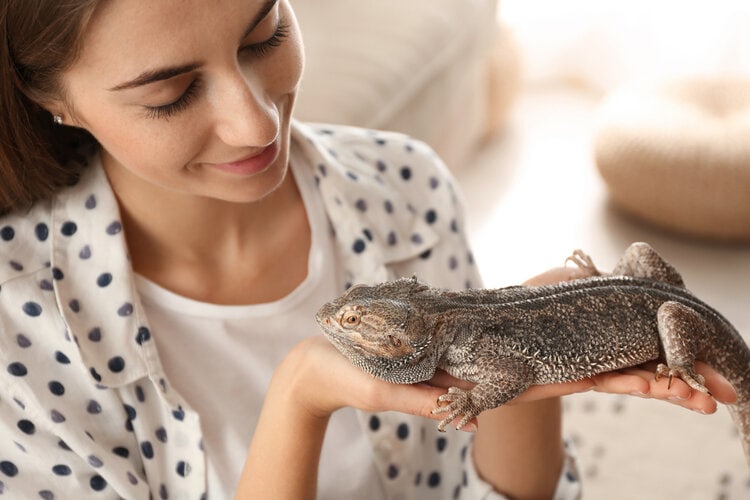
4. The Skin of Your Bearded Dragon Becomes Brighter
One of the fascinating things about bearded dragons is that their skin can change color when they’re happy! When satisfied, the skin of your beardie can become brighter.
However, bearded dragons can also become brighter when they are irritated or stressed, which is why you should also verify if your beardie is okay. If there are no environmental factors that may be causing distress in your beardie, the color change signifies happiness and nice feelings.
5. Your Beardie Closes Its Eyes
Bearded dragons are highly alert, as they have much to fear in their natural environment. Therefore, most beardies rarely close their eyes.
If your bearded dragon likes to close its eyes while you hold it, this could be a sign of happiness in your reptile friend.
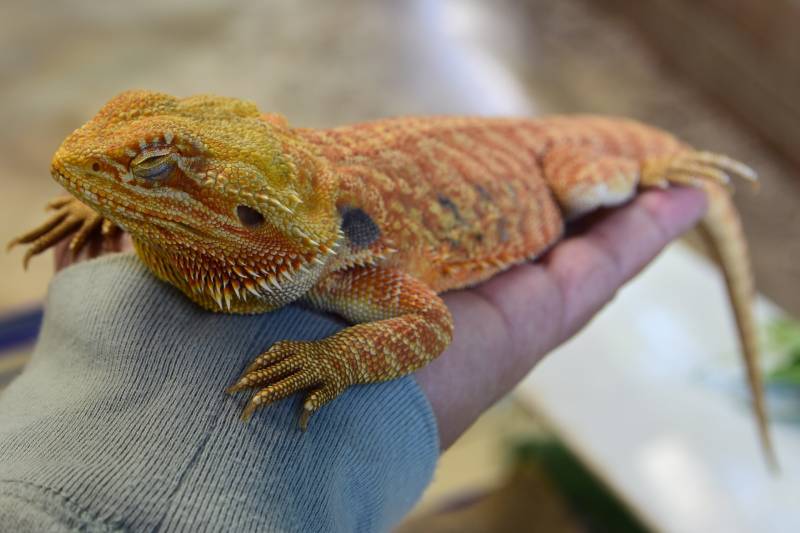
6. Your Beardie Likes to Bask
Most bearded dragons love basking, as it helps them collect vitamin D and relax in the sun. If your bearded dragon basks regularly and frequently, that is typically a sign that it’s happy and content.
If you notice that your bearded dragon isn’t basking as usual or is hiding during its usual basking time, there may be something wrong.
7. Your Beardie Likes Being Held
If your beardie lets you pet, touch, or lift it, that is a sign that it’s happy and content.
Beardies that dislike being held are typically strong about showing their distress and may hiss at you or bob their heads out of anger.
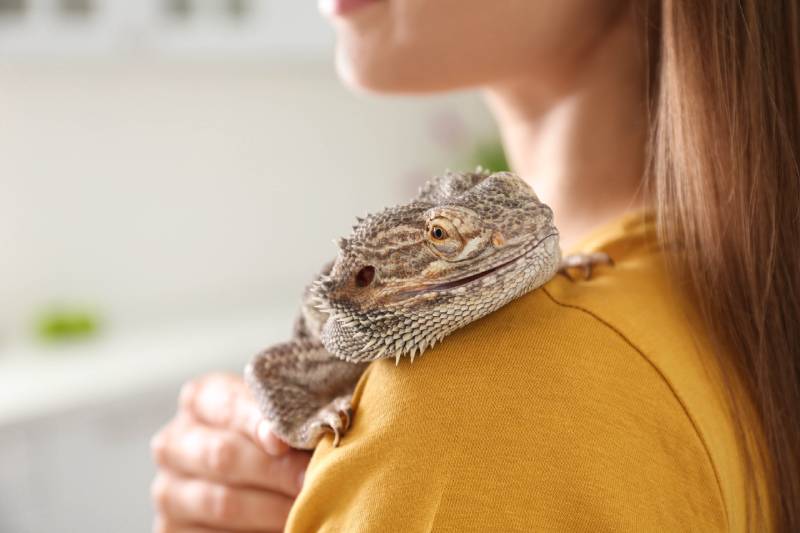
8. Your Beardie Willingly Climbs on You
Bearded dragons are typically social animals, and they love to be around humans. Once comfortable, your bearded dragon will willingly climb on you as a sign of happiness and affection.
So, if your beardie likes to occasionally climb on to you or hang out on your shoulders or simply in your hands, that’s a clear indicator that your beardie is happy.
9. Your Beardie Doesn’t Show Aggressive Behavior
When unhappy, a bearded dragon may hide frequently, hiss, or show aggressive behavior.
If there’s no aggressive behavior coming from your beardie, that’s typically a good indicator that your beardie is probably content.

Conclusion
Although your bearded dragon can’t show emotions like a typical pet, it can still indicate happiness; you just need to learn how to recognize it in its behavior. Most of the time, normal beardie behavior indicates a happy beardie, so remember to look for anything out of the ordinary to ensure that your reptile pet is happy and satisfied.
See Also:
- Do Bearded Dragons Like Music? The Surprising Answer!
- How to Travel With a Bearded Dragon – 8 Tips and Tricks
Featured Image Credit: New Africa, Shutterstock


